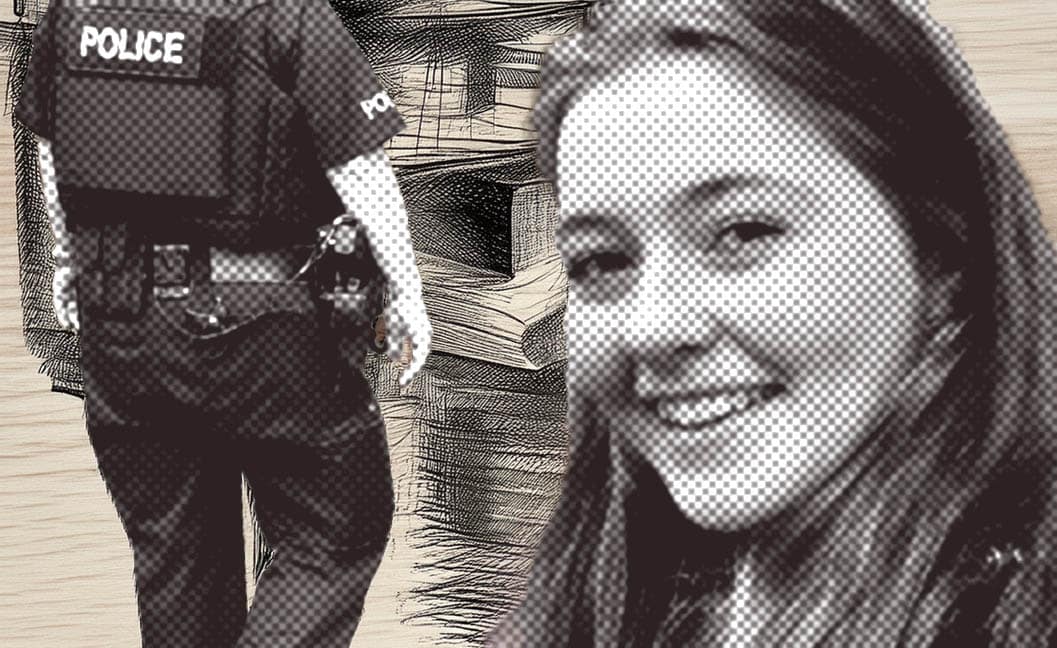
The PSNI’s catastrophic handling of Katie Simpson’s murder investigation has been compared to others, but few if any come close, and a recently discovered Police Ombudsman report has added further concerns around failure to adhere to guidelines for dealing with sudden deaths.
When errors were partially detailed last November, PSNI swiftly reverted to the all too common, “lessons have been learned.”
The same words came during a Policing Board meeting a few months beforehand and will no doubt regularly echo throughout the multiple reviews and investigations currently underway.
Exactly one year since truth died with Jonathan Creswell’s suicide 24 hours into his trial questions mount around the PSNI’s gross mishandling and the conduct of officers, including some of senior rank.
While the Ombudsman tackles three new serious complaints, the PSNI is witnessing an exodus of officers under investigation which the Chief Constable is powerless to prevent.
Having confirmed five officers have retired so far, the PSNI stonewalled when asked why none were suspended given the severity of the complaints, which may involve criminal misconduct.
Although this can proceed even if an officer has retired, it’s ultimately a PSNI decision.
Yet there is supposed to be reassurance couched as ‘lessons learned’.
In reality, learning is theoretical and rendered worthless unless properly practiced.
The outworkings are miscarriages of justice, re-traumatised victims and steadily festering confidence in authorities.
When those failing to apply the ‘lessons learned’ remain unaccountable, or as in Creswell’s case, permitted to walk, any remaining trust flounders.
Since the formation of the PSNI nothing comes close to the Creswell case, save perhaps Colin Howell and Hazel Stuart.
Albeit pre-PSNI, Lesley Howell and Trevor Buchanan’s deaths were closed as suicides when it was a double murder in domestic circumstances – two obvious factors in Katie’s case.
The Ombudsman’s report was scathing with the investigation likewise hampered by officers leaving.
But ‘lessons were learned’.
However an incident in 2010 really set the benchmark, leading PSNI to issue guidelines for all future sudden deaths.
The 52-year-old victim was found with serious facial wounds, causing an officer and a doctor concerns.
But senior detectives determined there was ‘nothing to see’, swiftly deeming death non-suspicious and freeing the crime scene shortly after.
A postmortem revealed the victim suffered blunt force head trauma and a murder inquiry was launched, but it was too late as the scene was compromised.
Two detectives were disciplined for failing to treat the death as suspicious and taking investigative steps.
The Ombudsman found the scene wasn’t adequately examined, no photographs were taken of it or the deceased and “evidence was irrevocably lost.”
Three people present in the property were arrested on suspicion of murder, however, by then the scene had been cleaned.
The Ombudsman stated: “The earliest stages of an investigation are the most vital, when evidence is fresh and undisturbed. These opportunities were lost when police released the scene on the basis death was non-suspicious. Whenever there is any suggestion death may have been suspicious, police should err on the side of caution and conduct all necessary enquiries.”
Having accepted “examination and photographs should be taken at the scene of every sudden or suspicious death” the PSNI subsequently issued guidelines.
Again, ‘lessons were learned’.
In Katie’s case, it would be months before a murder inquiry was finally launched and only after overcoming severe intransigence.
The PSNI deemed death suicide the first day she was admitted to hospital, dispensing with the requirement of capturing images of her savage injuries.
While officers did attend the house of Katie’s purported suicide, it was only sealed for a few hours, then released back to Creswell and his partner.
Once again, it was ‘nothing to see’ despite sustained efforts to provide police critical information while Katie’s life ebbed away.
Among multiple established mistakes, it’s now clear PSNI even failed to abide by their own guidelines drawn up after a previously mishandled case.
The ‘lessons learned’ assurances evaporated as swiftly as Creswell’s violence convictions from his criminal record.
Those repeatedly silenced by legal proceedings, loopholes, twisted narratives and in many instances extreme fear, demand to know exactly what lessons PSNI have learned.
The only certainty is that mistakes keep happening.
Whether accidental or intentional remains to be uncovered, but why should officers care if they can jump-ship while under investigation?
The continuing knell of the ‘lessons learned’ bell rings painfully hollow for many affected by Katie’s murder.
Same song, different tune and long played out.
The PSNI must change not just their tune but the lyrics, because the current theme is no longer fit-for-purpose.





